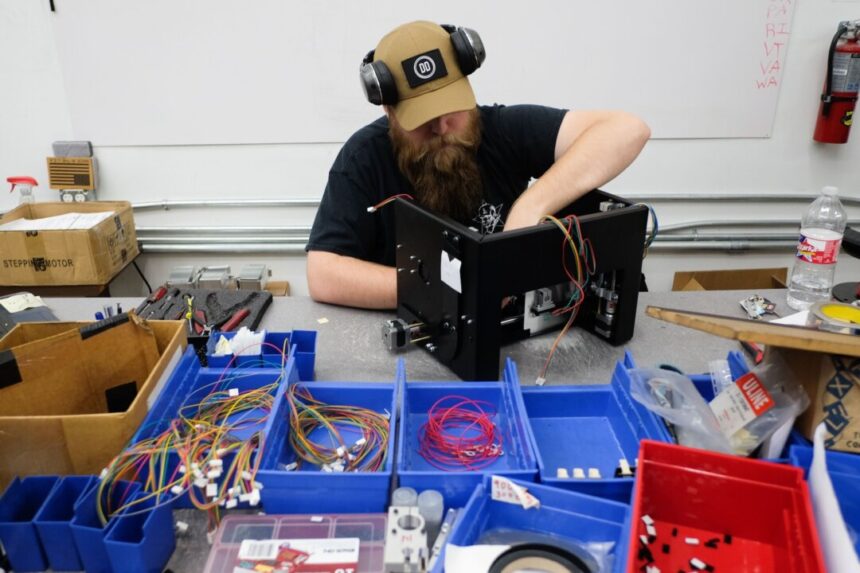A Texas-based company that manufactures machines that allow individuals to build untraceable firearms will have to face a lawsuit brought by the State of California in that state, following a federal judge’s decision to deny the firm’s request to transfer the case to Texas.
The judge ruled that California is the real party in interest and there are no grounds for federal jurisdiction based on the companies’ argument of diversity of citizenship, which is a legal concept allowing federal courts to preside over cases involving parties from different states.
The ruling is a setback for Defense Distributed and its affiliates, which had sought to move the case to Texas, where the companies are headquartered and where much of the evidence and key witnesses are located. The companies argued that Texas courts were more familiar with their operations due to prior litigation and claimed that California was not the real plaintiff, alleging that the Giffords Law Center, a nonprofit advocating for gun control, was driving the lawsuit. Battaglia dismissed these claims, stating that California is clearly the party of interest.
Defense Distributed and its affiliates manufacture computer numerical control (CNC) milling machines that allow individuals to produce unregistered firearms, commonly known as ghost guns, by assembling them at home from unfinished parts. These firearms lack serial numbers, making them difficult for law enforcement to trace.
The law, enacted in 2016 and expanded in subsequent years, seeks to address concerns about the proliferation of untraceable ghost guns, which state authorities say are often used in criminal activity.
In its lawsuit against Defense Distributed and affiliates, California highlights the growing issue of ghost guns, citing a sharp increase in the number of untraceable firearms recovered in the state—from 26 in 2015 to 12,894 in 2022.
Battaglia, in his ruling, noted that law enforcement agencies across California have reported that ghost guns account for 25 to 50 percent of all firearms recovered at crime scenes in major cities including Los Angeles, San Diego, and San Francisco.
California says that the sale of ghost gun milling machines has made it easier for criminals to acquire untraceable firearms, posing a serious public safety risk. The state seeks an injunction to prevent Defense Distributed and its affiliates from continuing to sell the devices to Californians, along with financial penalties for violating the state’s gun control laws.
The companies, however, maintain that their products are legal under federal law, and argue that California’s regulations infringe on individuals’ Second Amendment rights to manufacture firearms for personal use.
The company also recommended alternative suppliers.
Please rewrite this sentence.
Source link





